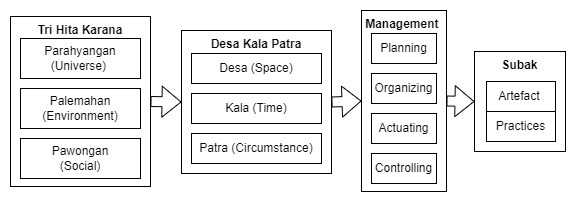Ontology-based data framework for the digital preservation cultural heritage: A case of Subak
Keywords:
Cultural heritage, Digital preservation, Knowledge externalization, Ontology Development, Ontology EvaluationAbstract
Cultural heritage is increasingly fading due to the influence of globalization and social changes that shift traditional values. Digitalization is critical to addressing the degradation of cultural heritage knowledge by enabling more accessible storage and documentation and facilitating preservation and education efforts for future generations. Subak, as a unique traditional agricultural system in Bali, Indonesia, has a wealth of valuable knowledge and culture, but it is still scattered and unstructured. An ontology-based Knowledge Management System is designed to capture, organize, and utilize knowledge within a domain using ontologies as a fundamental component. Ontologies explicitly represent knowledge by providing meaning, properties, and relationships with related concepts. This paper proposes data modelling with the Ontology Development framework for the knowledge base. The methodological framework consists of knowledge externalization, including identifying and collecting knowledge based on data modelling through interviews and observations. The second steps are modelling and development of ontology, based on the knowledge that has been previously disclosed, including the hierarchical structure, properties, and relationships that form the knowledge base. The third stage is the Implementation and evaluation, which involves evaluating the quality of ontology using onto metrics and implementing the ontology into the KMS. The result of this study is data modeling for the knowledge base and the Ontology Development framework. The data modelling is a form of data mapping based on a combination of traditional philosophy and modern management principles that underlie Subak activities and artefacts, namely Tri Hita Karana, Desa Kala Patra, and POAC. The proposed framework can be a reference in developing new ontologies from scratch on unstructured cultural heritage data.
Downloads



